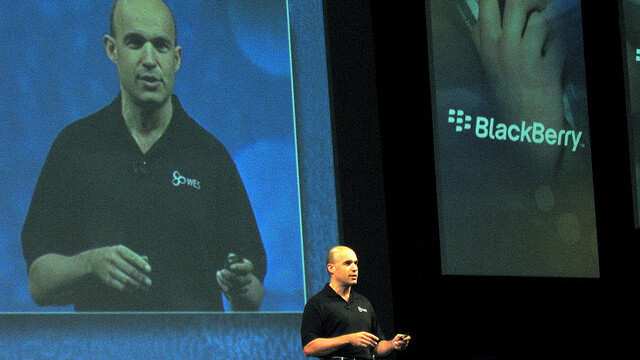
Prior to stepping down from his position as co-CEO at Research in Motion (RIM), Jim Balsillie is reported to have engaged in talks with numerous high-profile mobile carriers around the world in the hope of securing deals that would see rival mobile devices owners connect to its proprietary networks.
Sources told Reuters that Balsillie was talking to AT&T and Verizon in the US, and Vodafone, Deutsche Telekom, Telefonica and France Telecom in Europe, with suggestions that one major Canadian carrier was also present during the talks, as he sought to provide cheaper data plans and data-crunching services to mobile owners regardless of their handset.
This, of course, would have been a move away from RIM’s BlackBerry-only strategy, which has been its main focus since it launched its first handsets.
This is said to have unsettled investors and other executives at the company, ultimately ending in Balsille resigning from his role as co-CEO (alongside Mike Lazaridis) in January, then leaving the Board of Directors later in March. Lazaridis is still involved with the company, but his former executive partner is effectively unemployed.
They were replaced by new CEO Thorsten Heins, who has since said that he would consider licensing the company’s upcoming BlackBerry 10 software to other manufacturers.
It is believed that carriers were interested in the plan, as it would “encourage lower-value talk-and-text customers to upgrade to entry-level smartphone plans, with access limited to Twitter, Facebook, messaging and other social media platforms.”
It would have involved the porting of RIM’s BBM app and an arrangement to rely on RIM’s private network, which is already integrated into mobile networks across the world. The network encrypts data transmissions (which has led to issues in India and wider parts of Asia) and crunches data, meaning users use less data on their devices.
The plans were vetoed and now the company will look towards its BlackBerry 10 devices, which it hopes will be able to finally take the fight back to Apple, Samsung and its other mobile rivals.
Financially, RIM is struggling. The company announced that in its fourth quarter, Blackberry shipments were down 21% from Q3 and the company didn’t meet its already low earnings expectations it had set.
Estimates were at $4.54 billion for the quarter, and RIM missed the mark with $4.2 billion, selling a mere 500k Playbook tablets. The bottom line was a $125 million quarterly loss for the company.
The company said, in a statement, that it was “exploring all options” and looking for “strategic opportunities” which could help to carry it forward, but ultimately things haven’t looked good for the Canadian smartphone manufacturer, and they haven’t for quite some time.
Balsillie wanted to drastically change the company, setting it down a new path. His colleagues disagreed and he subsequently left the company.
It would have been ballsy (get it?) move, one that may have helped the company in the short term, but the company needs to see a rapid improvement in its hardware sales, or it could soon go the same way as Palm.
Get the TNW newsletter
Get the most important tech news in your inbox each week.





